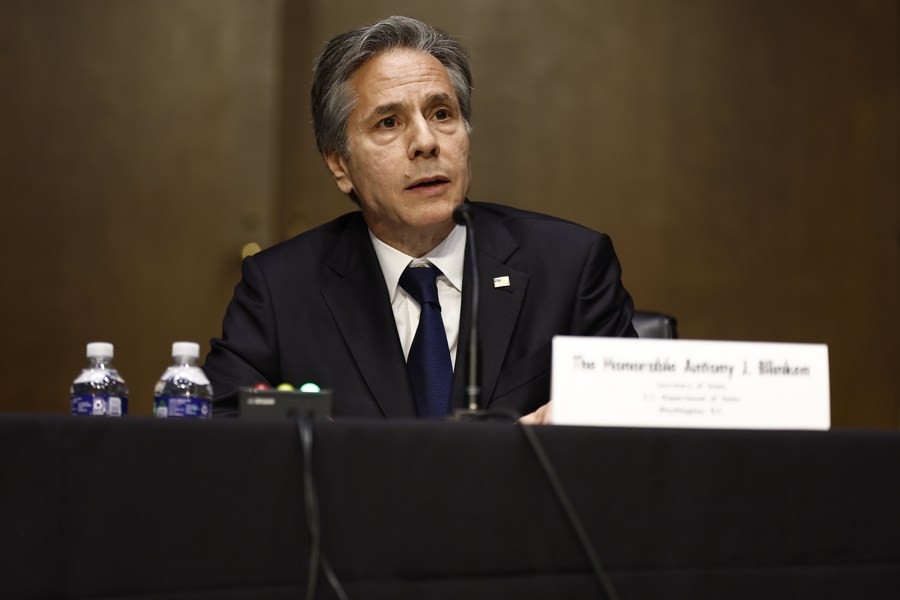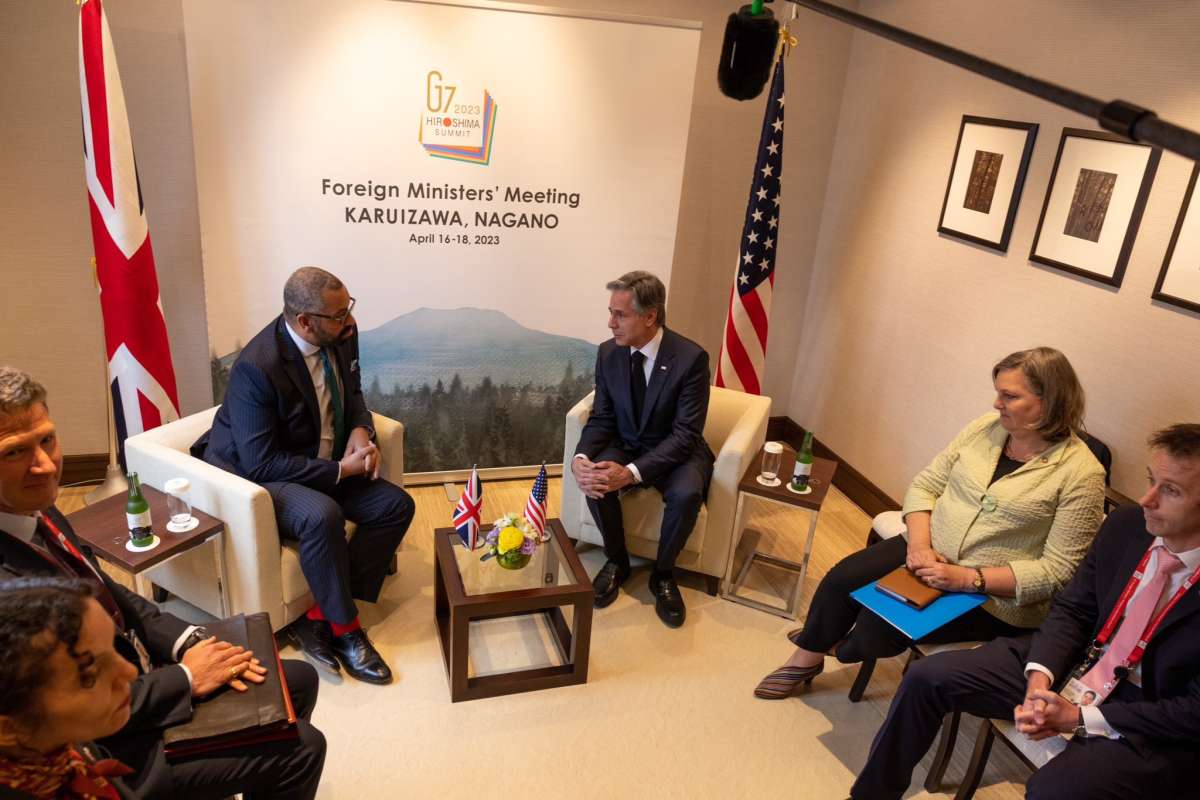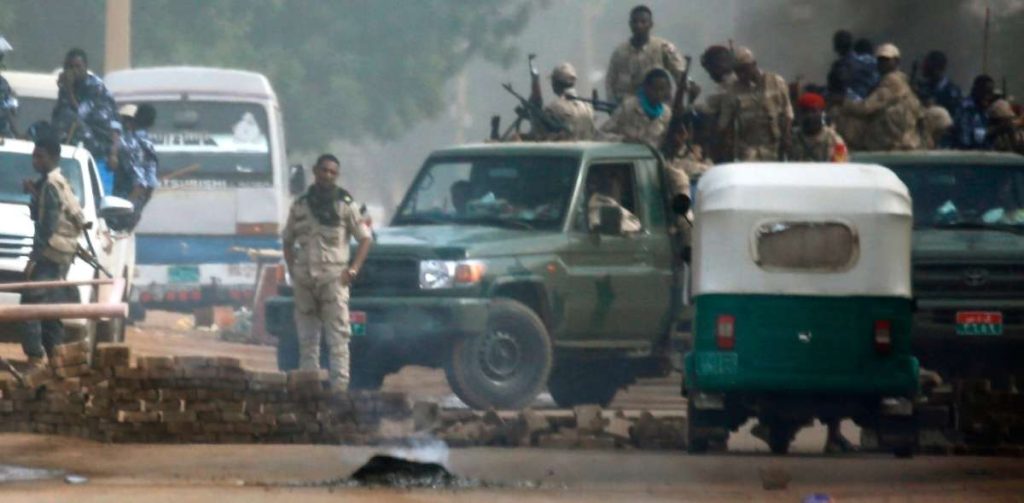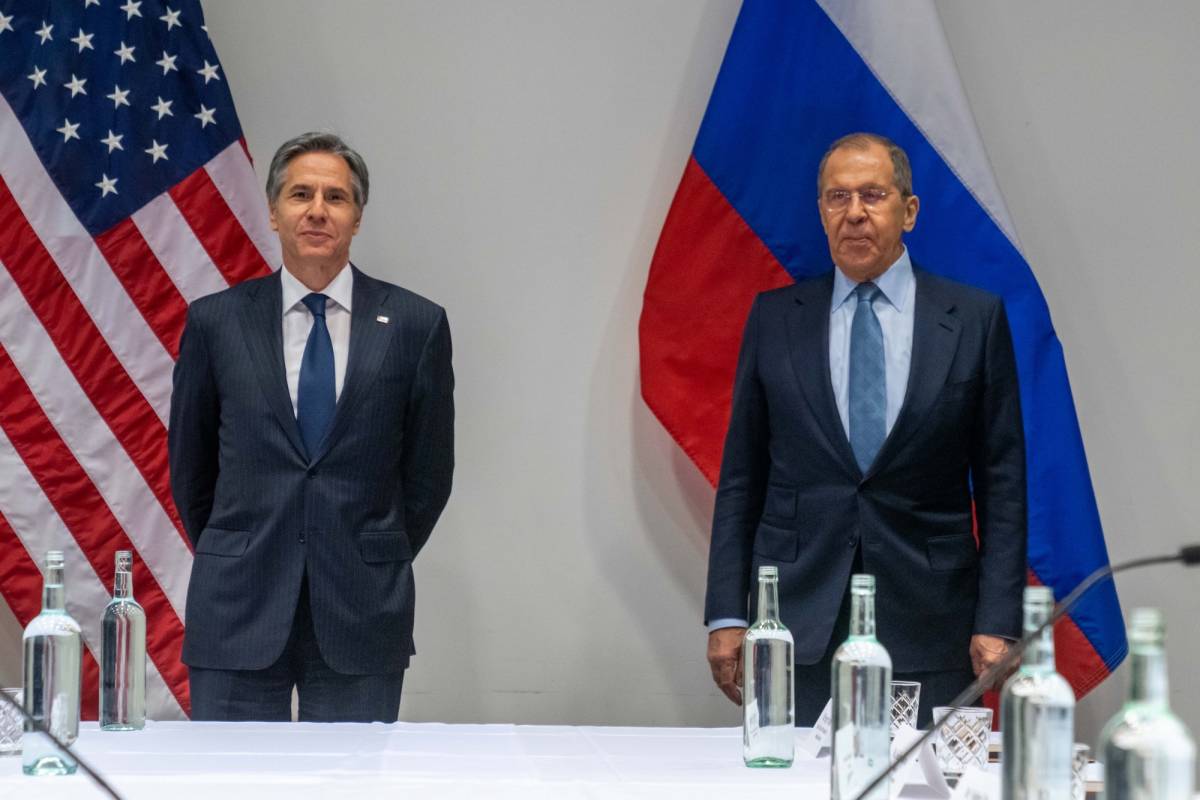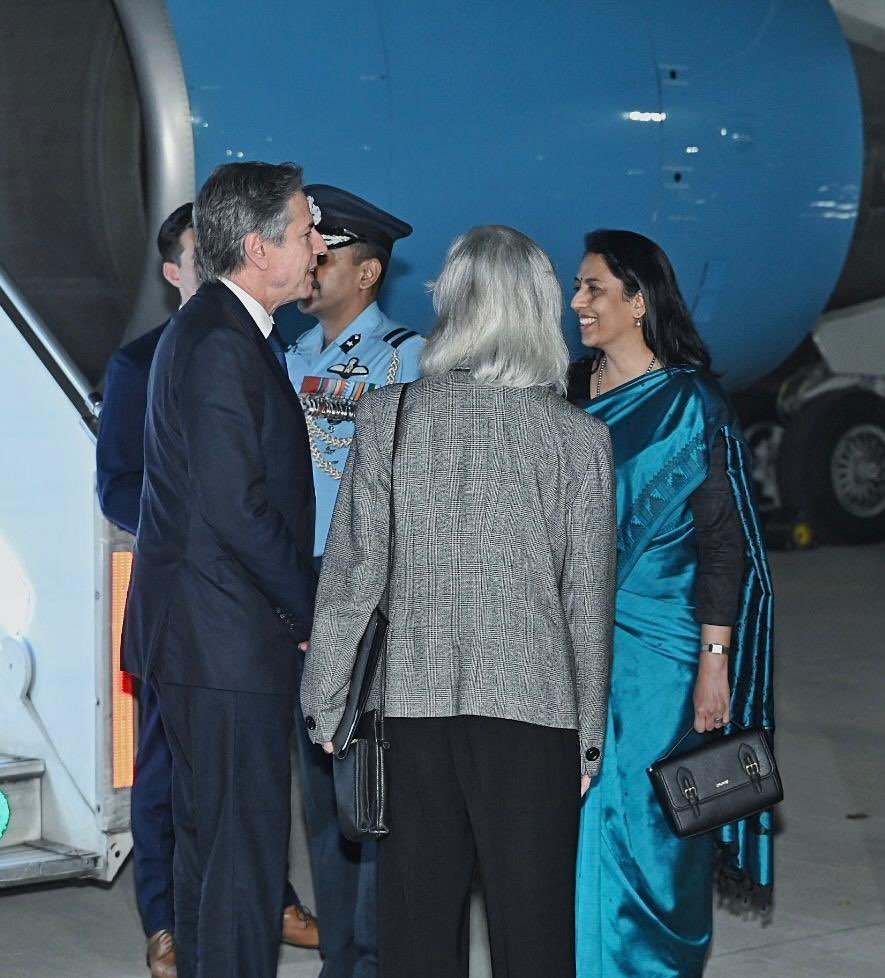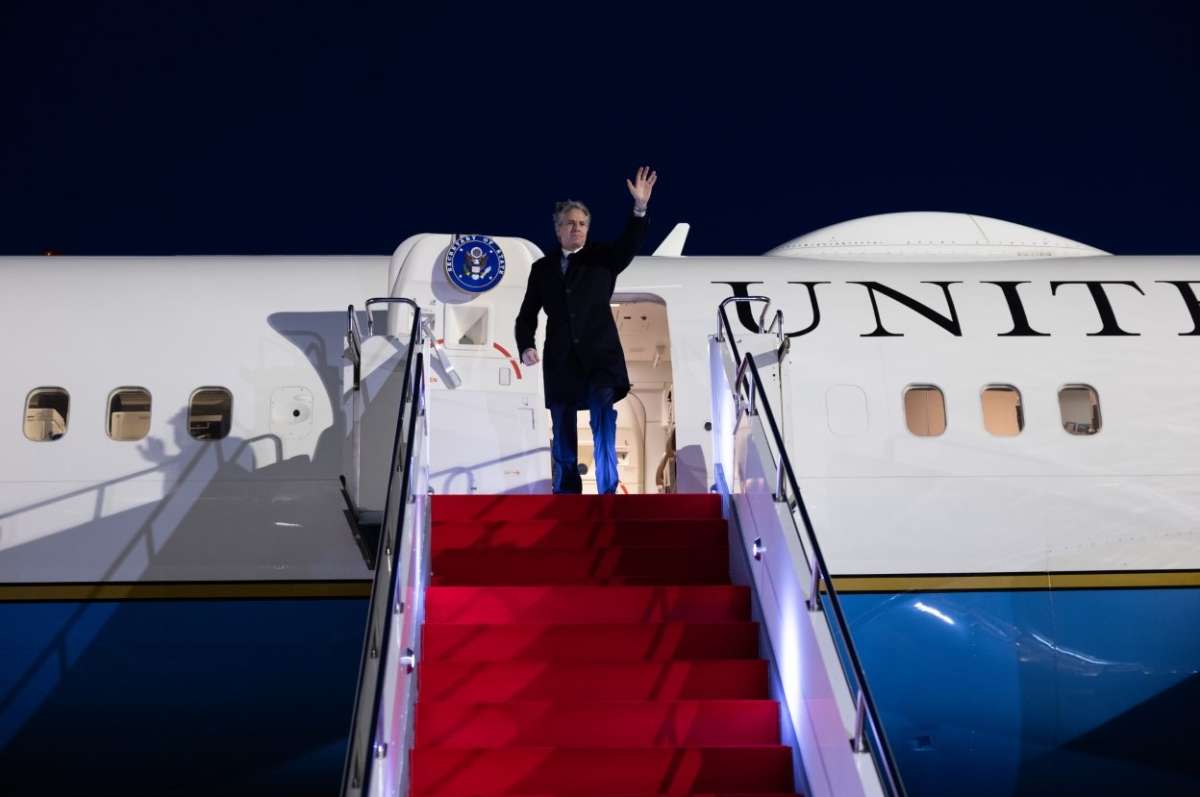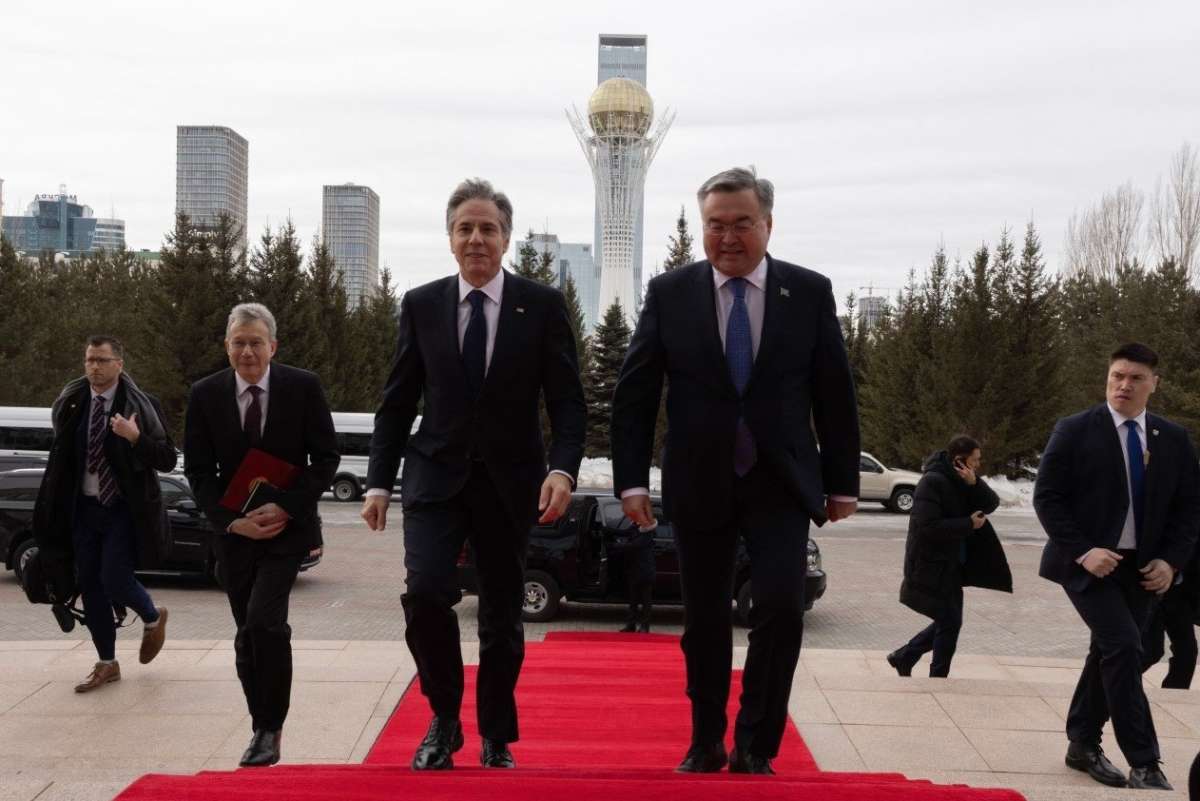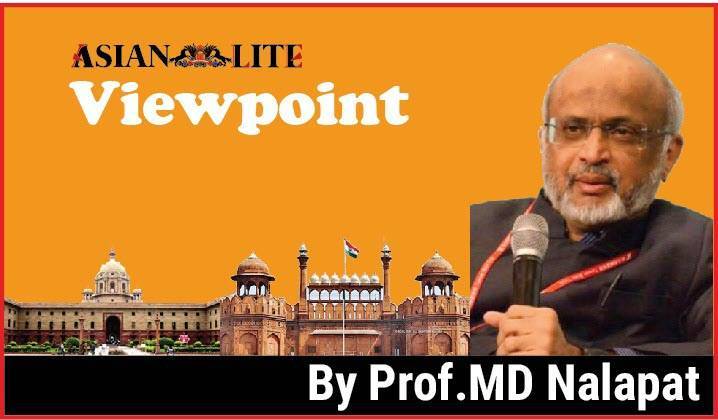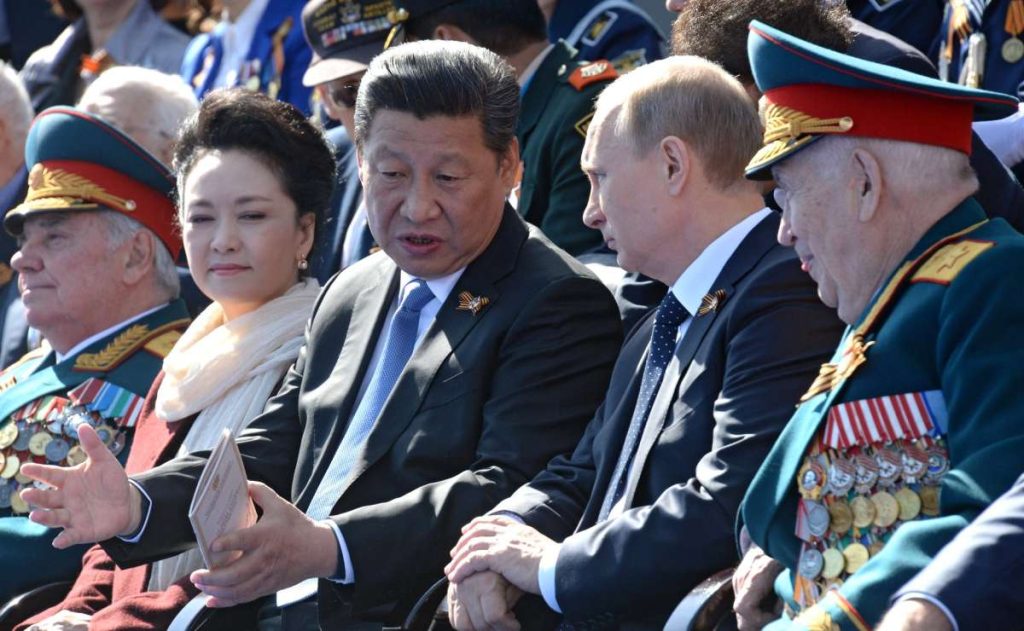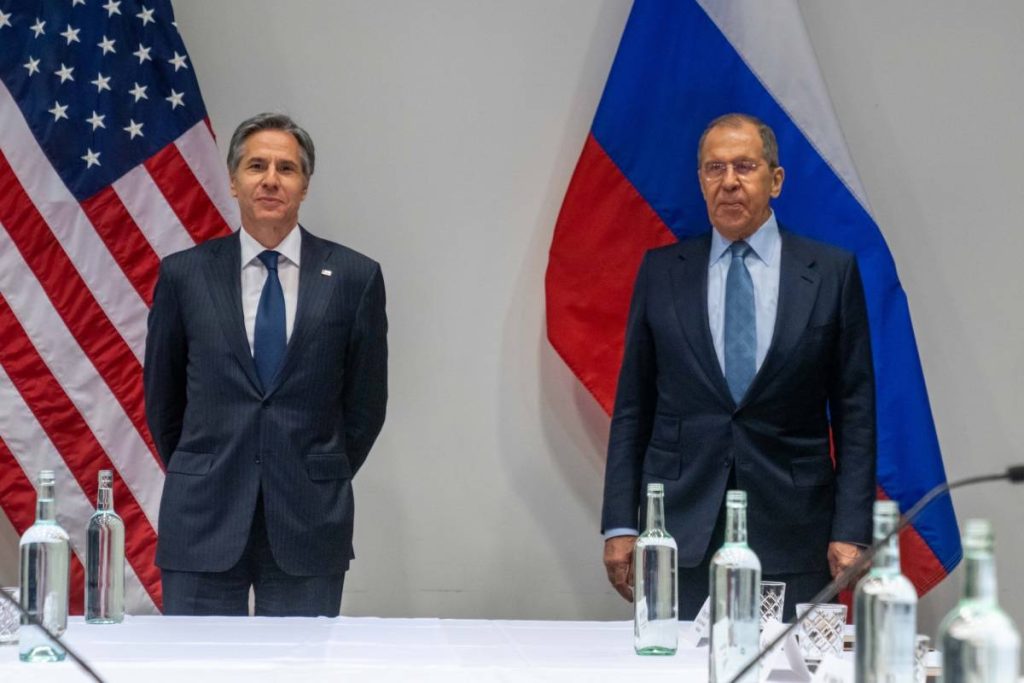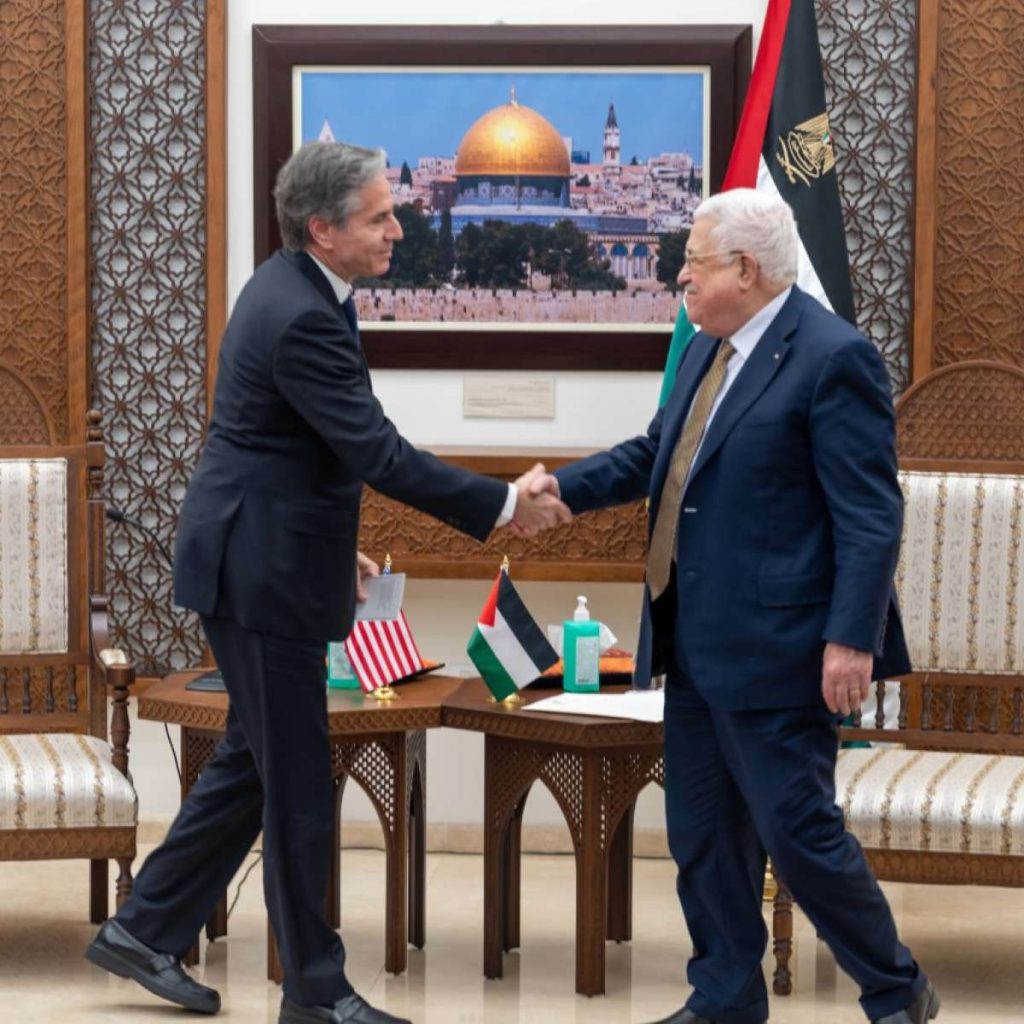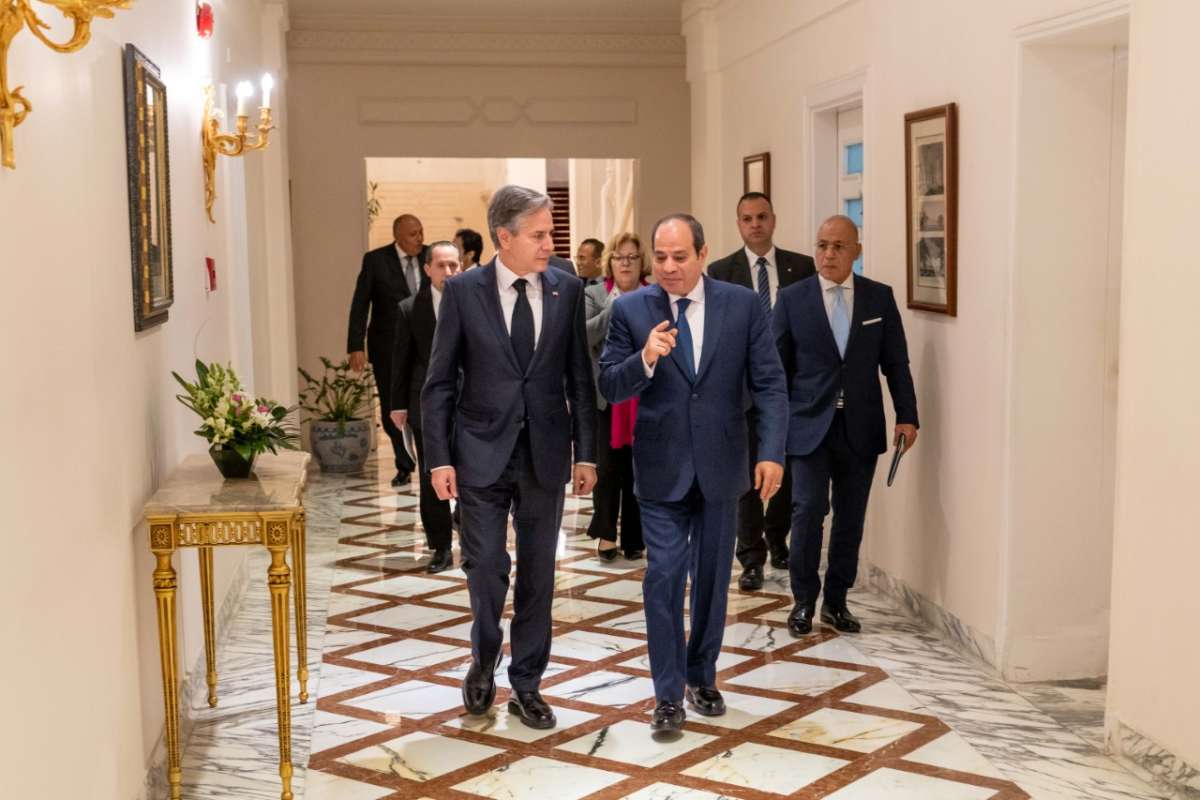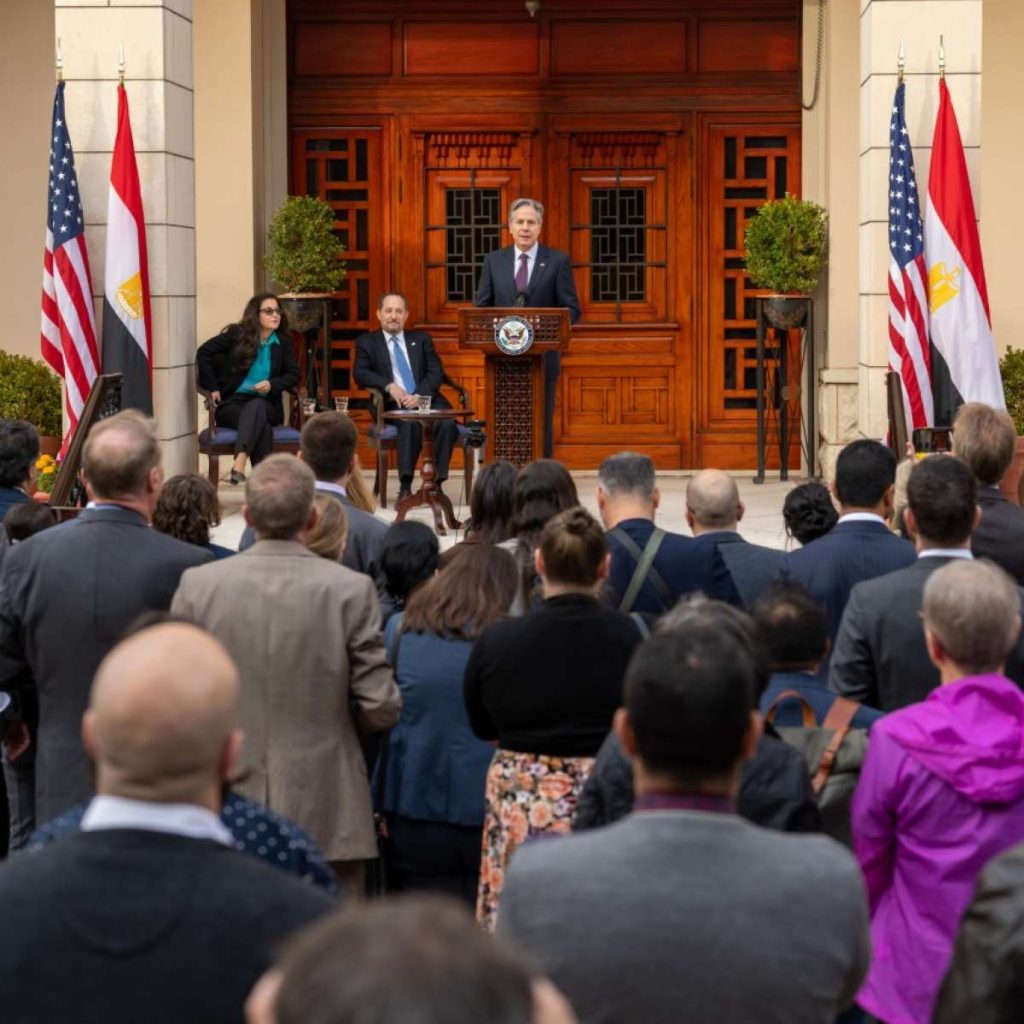Blinken is the first Secretary of State to travel to China in five years…reports Asian Lite News
As part of efforts to improve strained relations between the two largest economies, visiting US Secretary of State Antony Blinken met top Chinese diplomat Wang Yi in Beijing on Monday.
The meeting is currently underway at the capital city’s Diaoyutai State Guesthouse — a lavish estate typically used to host visiting dignitaries, reports the BBC.
Blinken is the first Secretary of State to travel to China in five years, as well as the most senior official making the visit since President Joe Biden took office in early 2021.
It is however unclear if Blinken will meet President Xi Jinping.
According to a State Department official, Blinken’s primary goal in China is to re-establish channels of communication, especially direct military-to-military communication between Washington and Beijing, reports CNN.
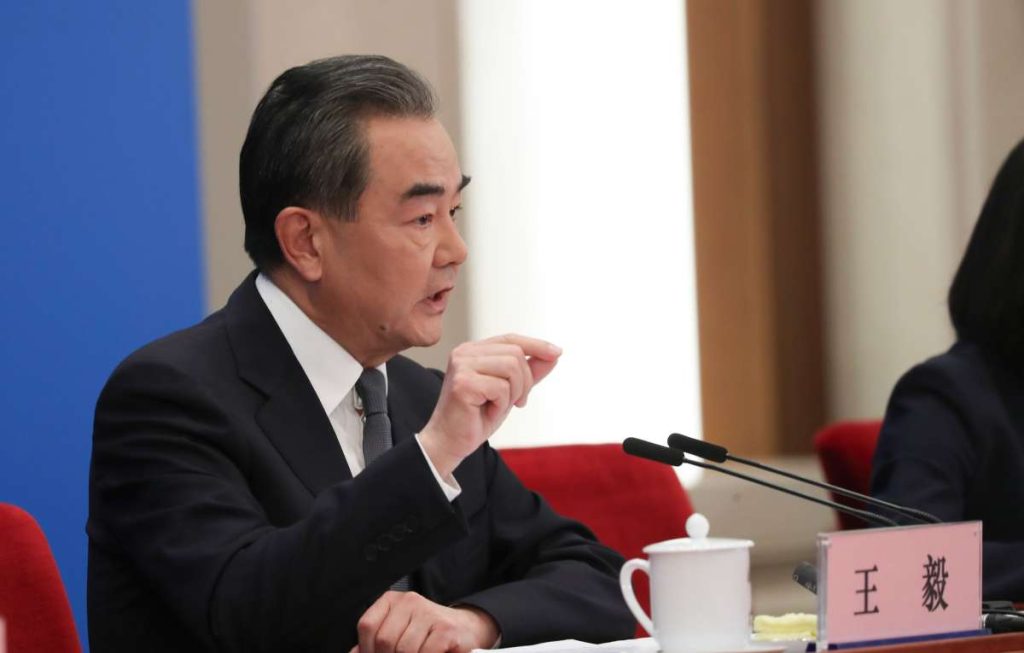
Upon his arrival in Beijing on Sunday, the Secretary of State met Chinese Foreign Minister Qin Gang, who took up the post six months ago after ending a stint as Beijing’s Ambassador to Washington.
Blinken and Qin shook hands in front of reporters at the Diaoyutai State Guesthouse on Sunday afternoon, their first in-person meeting in their current positions, CNN reported.
During the meeting, which lasted for more than five hours, Blinken invited Qin to visit Washington and the invitation was accepted, State Department spokesperson Matt Miller said in a readout of the meeting.
“The Secretary invited Foreign Minister Qin to Washington to continue discussions, and they agreed to schedule a reciprocal visit at a mutually suitable time,” Miller said, adding that Blinken had emphasised the “importance of diplomacy and maintaining channels of communication across the full range of issues to reduce the risk of misperception or miscalculation”.
Blinken also expressed US concerns on a number of fronts and opportunities to work together with China where interests align, Miller said.
US officials who took part in the meeting included Assistant Secretary of State for East Asian and Pacific Affairs Daniel Kritenbrink and US Ambassador to China Nicholas Burns.
On the Chinese side, Qin was accompanied by other Foreign Ministry officials, including Assistant Foreign Minister Hua Chunying.
Besides his meeting with Wang on Monday, Blinken is also scheduled to hold roundtable talks with American exchange students and business leaders.
The Biden administration’s relationship with Beijing is one of its most complicated and consequential, and one that has seen months of strain, including two military-related incidents in recent weeks.
Biden and Xi met in person for the first time as presidents on the sidelines of the Group of Seven summit in Indonesia last November.
Blinken’s trip, which had been announced by Biden and Xi after their meeting, was originally scheduled to happen in February and had been seen as a key follow-on engagement.
However, it was postponed after the discovery of a suspected Chinese spy balloon transiting the US, which Blinken said at the time “created the conditions that undermine the purpose of the trip”.

